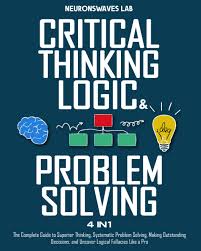Small and Medium Enterprises (SMEs) must navigate increasing complexity, uncertainty, and digital disruption in today’s competitive global economy. This white paper provides a professional framework for incorporating critical thinking, metacognition, and reflective equilibrium into SME strategy, business development, digital transformation, and policy engagement. These cognitive tools enable SMEs to enhance adaptability, drive innovation, make ethically sound decisions, and strengthen competitive advantage. Real-world use cases and expert partners such as KeenComputer.com and IAS-Research.com are discussed as key enablers in this transformation.
Integrating Critical Thinking, Metacognition, and Reflective Equilibrium into SME Strategy, Policy Engagement, and Digital Transformation
Executive Summary
Small and Medium Enterprises (SMEs) must navigate increasing complexity, uncertainty, and digital disruption in today’s competitive global economy. This white paper provides a professional framework for incorporating critical thinking, metacognition, and reflective equilibrium into SME strategy, business development, digital transformation, and policy engagement. These cognitive tools enable SMEs to enhance adaptability, drive innovation, make ethically sound decisions, and strengthen competitive advantage. Real-world use cases and expert partners such as KeenComputer.com and IAS-Research.com are discussed as key enablers in this transformation.
1. Cognitive Foundations for Strategic Excellence
1.1 Critical Thinking
Critical thinking involves objective analysis and evaluation to form a reasoned judgment. In SME settings, it facilitates:
- Evidence-based decision-making
- Bias reduction and assumption testing
- Strategic foresight and scenario planning
"In a volatile and competitive business environment, organizations that prioritize and cultivate critical thinking outperform those that rely on intuition, rigid processes, or outdated paradigms." [1]
1.2 Metacognition
Metacognition refers to self-awareness about one's thinking processes. It promotes:
- Enhanced planning and reflective practice
- Continuous learning and adaptability
- Improved executive decision-making
1.3 Reflective Equilibrium
Reflective equilibrium is a method of reconciling competing principles or perspectives to reach coherent, justifiable decisions. It supports:
- Ethical alignment in business strategy
- Consensus building among stakeholders
- Navigating ambiguous or fast-changing conditions
2. Strategic Applications in Business Development and Decision-Making
2.1 Scenario Analysis and Innovation
- Critical thinking enhances risk analysis and long-term forecasting.
- Metacognitive strategies improve feedback loops and iterative innovation.
- Reflective equilibrium resolves trade-offs between innovation, compliance, and customer needs.
Use Case: A health-tech SME employed critical thinking frameworks and reflective equilibrium to balance clinical compliance with user-friendly design, leading to faster product approvals and improved market adoption.
2.2 Policy and Stakeholder Engagement
- Structured, evidence-based argumentation enhances persuasion.
- Reflective equilibrium enables SMEs to frame policies aligning business needs with broader social goals.
Use Case: A coalition of SMEs used data-driven lobbying techniques and stakeholder mapping to successfully advocate for regional digital infrastructure investments.
3. Digital Transformation in the SME Context
3.1 Role of Cognitive Frameworks
|
Challenge |
Cognitive Tool |
Impact |
|---|---|---|
|
Choosing technology platforms |
Critical Thinking |
Avoids costly missteps, ensures ROI [5][6] |
|
Managing resistance to change |
Metacognition |
Promotes buy-in and cultural alignment [4] |
|
Aligning teams and objectives |
Reflective Equilibrium |
Enhances collaboration and governance [9] |
3.2 Digital Maturity and Leadership
- Leaders equipped with metacognitive skills better handle digital disruption.
- SMEs can adopt reflective dashboards and AI-powered feedback systems for strategy refinement.
Use Case: A retail SME collaborated with KeenComputer.com to build an omnichannel eCommerce system using WordPress and Magento. Internal IT staff were trained in reflective practices, resulting in a 35% increase in online revenue.
4. Institutional and Environmental Support
4.1 Role of Policy Makers
Governments and institutions can enhance SME competitiveness by:
- Funding critical thinking and digital literacy training
- Supporting SME access to digital infrastructure and AI tools
4.2 The Role of Expert Partners
KeenComputer.com
- Provides CMS, eCommerce, and analytics systems with embedded reflective tools
- Trains IT and business teams in critical thinking and data-driven strategy
- Co-develops transformation roadmaps using open-source technologies
IAS-Research.com
- Offers research-based advisory and AI-enhanced analytics frameworks
- Supports metacognitive training and strategic governance reviews
- Assists SMEs in stakeholder engagement, policy advocacy, and leadership coaching
Collaborative Engagement Model
|
Function |
Your Personnel |
Partner Role |
|---|---|---|
|
IT and system integration |
IT/Admin staff |
KeenComputer.com co-develops and trains |
|
Strategic planning |
Managers/Executives |
IAS-Research.com facilitates reflection workshops |
|
Policy communication |
Marketing and stakeholders |
Joint development of persuasive frameworks |
5. Tools and Methodologies for Implementation
|
Tool |
Use Case |
|---|---|
|
SWOT + Reflective Equilibrium |
Strategic alignment and governance |
|
Zettelkasten with Obsidian |
Metacognitive knowledge management |
|
Six Thinking Hats |
Team problem-solving and innovation |
|
CrewAI and Predictive Dashboards |
AI-enhanced decision systems |
|
Digital Maturity Assessment |
Roadmap for transformation |
6. Conclusion and Strategic Recommendations
Critical thinking, metacognition, and reflective equilibrium are essential tools for SMEs navigating today’s fast-paced, digitally disrupted economy. These frameworks, when embedded across leadership, strategy, and systems, create businesses that are not only more competitive but also more ethical, adaptive, and resilient.
Recommendations:
- Build internal capacity via training, coaching, and cognitive tools
- Leverage partners like KeenComputer.com and IAS-Research.com for co-creation and digital integration
- Implement continuous reflection through dashboards, retrospectives, and AI agents
- Promote ethical decision-making and stakeholder trust through structured persuasion
References
- https://www.keencomputer.com/project-portfolio/enteprise-it-projects/691-white-paper-critical-thinking-as-the-link-between-business-development-professional-growth-and-ethical-persuasion
- https://bradsugars.com/critical-thinking-skills/
- https://aithor.com/essay-examples/the-role-of-critical-thinking-application-in-enhancing-problem-solving-skills
- https://pmc.ncbi.nlm.nih.gov/articles/PMC10054602/
- https://www.it-ed.com/en/digital-transformation-of-companies/
- https://www.forbes.com/councils/forbesbusinesscouncil/2024/09/05/digital-transformation-strategies-for-small-and-medium-enterprises/
- https://www.oecd.org/en/topics/sub-issues/digitalisation-of-smes.html
- https://www.charterglobal.com/digital-transformation-smes-strategies-growth/
- https://www.mdpi.com/2076-3387/15/3/107
- https://www.linkedin.com/pulse/digital-transformation-smes-unlocking-opportunities-román-palencia-jm3jc
- https://wjarr.com/sites/default/files/WJARR-2024-0706.pdf
- https://criticalthinkingsecrets.com
- https://kapable.club/blog/thinking-skills/why-are-advanced-critical-thinking-skills-essential-for-leadership/
- https://www.techfunnel.com/information-technology/digital-transformation-smb-guide/
- https://interdisciplinarystudies.org/wp-content/issues/vol35_2017/08_121-169.pdf
